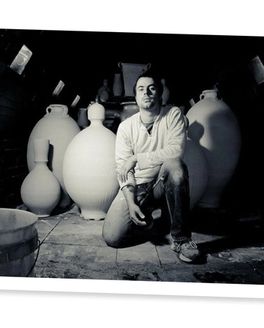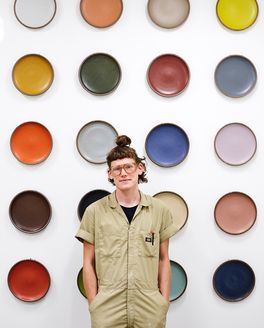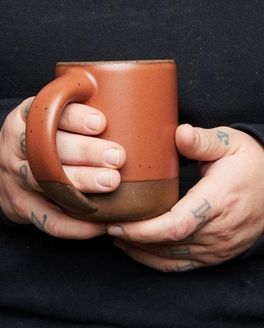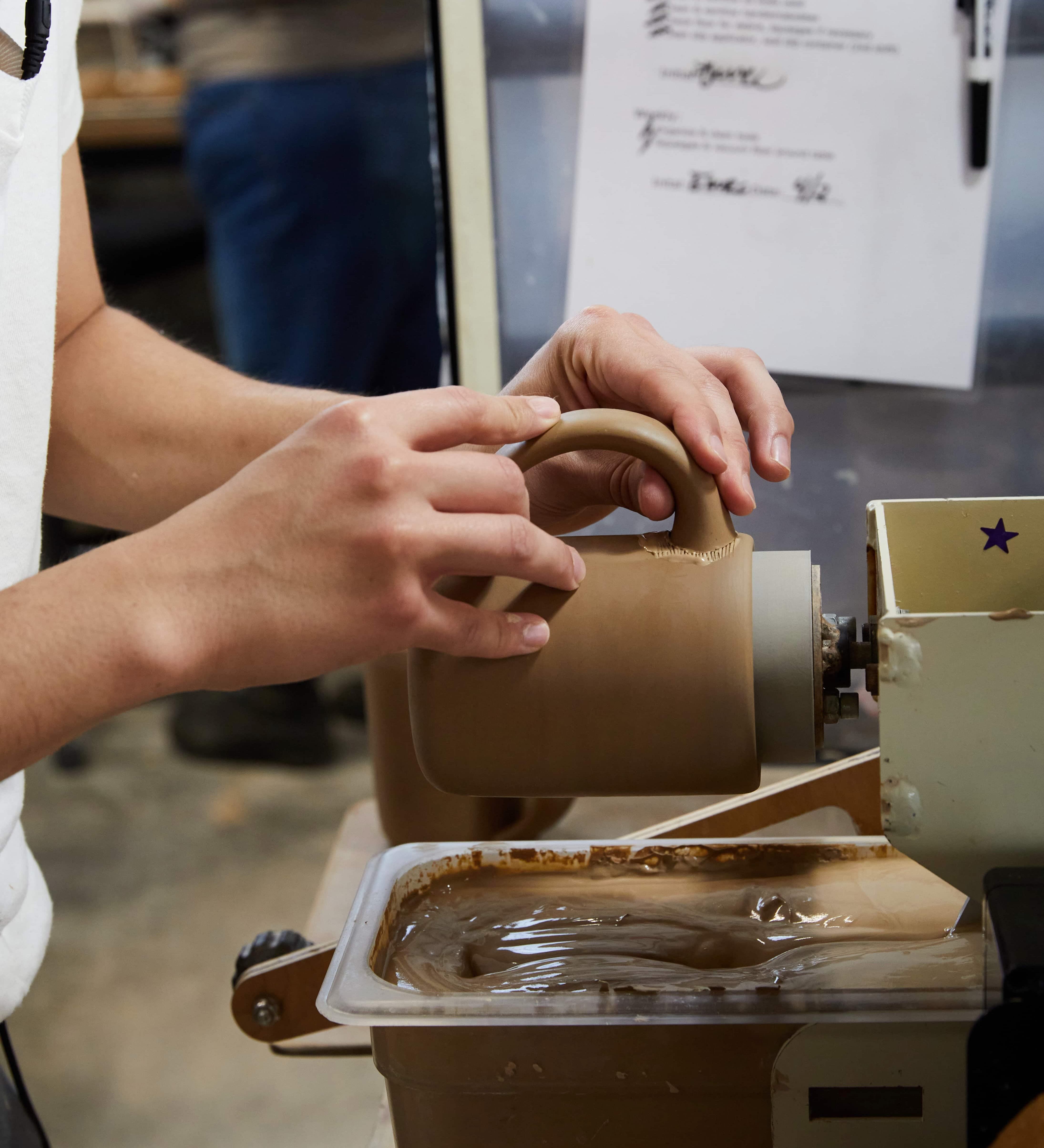
Pots on the Move
While East Fork’s roots go back to an old tobacco farm turned pottery workshop tucked away in the Blue Ridge Mountains, today we are one of the most technologically advanced producers of dinnerware in the United States.
We’ve expanded to over 100 employees working in factory production, the warehouse, our retails stores, and offices. Between our brand headquarters at Short McDowell to our factory and warehouse located off the beaten path, your pots pass through so many human hands before they make their way home to you!
Want to see how the magic happens?
Claymaking
In 2024, we finished constructing our “clay line” in our factory warehouse (affectionately known to the Team as Caribou). Now, with this system of hoppers, mixers, and conveyor belts, we can make our own clay from raw materials. With more control over materials in the beginning of our manufacturing process, the more consistently we’re able to produce pots that meet our high standards.
Hitting the Road
Next, the Team loads clay pugs (i.e. the clay logs that look like giant Tootsie Rolls) onto a truck and heads over to East Fork headquarters, where the clay makes its way through the next stage of the process…
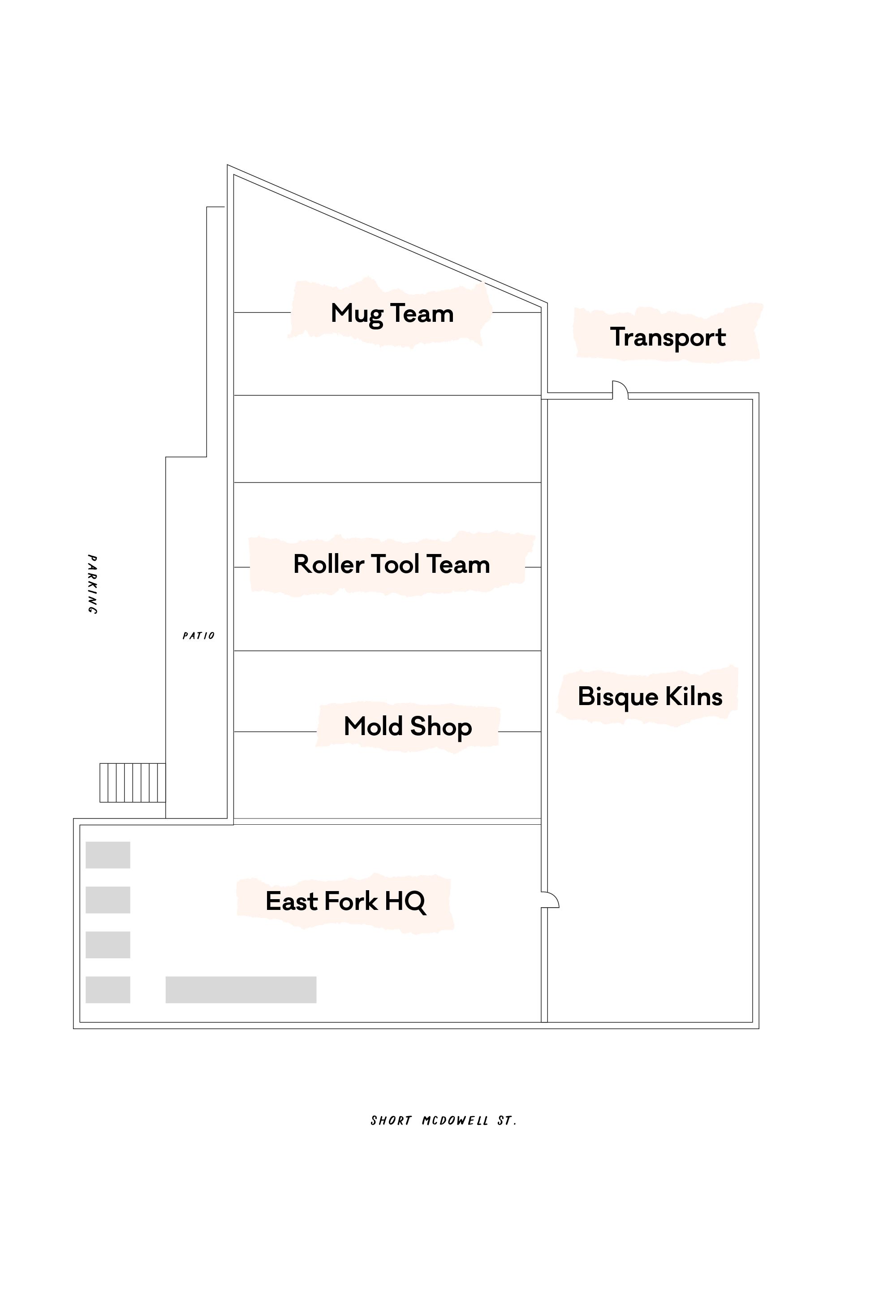
Behind the Scenes at HQ
Welcome to East Fork headquarters, one part offices, another part factory. This is where our human resources, finance, engineering, IT, marketing and sales teams work. On the factory side of HQ, our production team is constantly moving and grooving, attaching mug handles by hand, spinning bowls, firing kilns, and making molds!
In The Mold Shop
The Mold Shop creates scratch-made molds and dies that are used to shape our beloved pots. The team takes “master” molds developed in our engineering department and uses them for our RAM presses and Roller Tools. Precision is essential in all our work, and especially here. Even the smallest crack or air bubble in the plaster can affect the final outcome of thousands of pots.
Hi, Roller Tool
This amazing machine has a rotating tool head that works in conjunction with our plaster molds to form a wide variety of pieces. Everything from the Tiny Cup to The Mug, Cake Plate to the Dinner Plate, and Breakfast Bowl to the Mixing Bowl can trace their beginnings to the Roller Tool.
Next up... The Mug Team
The Mug is our most complex form. Where most pots take one or two steps to become completed forms, The Mug takes five! In a series of processes, The Mug’s body and handle are formed separately and the handle is carefully attached by hand.
From Greenware to Bisque, The First Firing
We use one electric kiln and five gas kilns at HQ for firing. Bone dry pots (a.k.a greenware) are loaded into the kilns overnight for their first firing. This prepares the pots for glazing, and afterward they’re sturdy enough to be packed tightly into crates and driven back over to Caribou. A pot in this stage of the journey is called “bisque.”
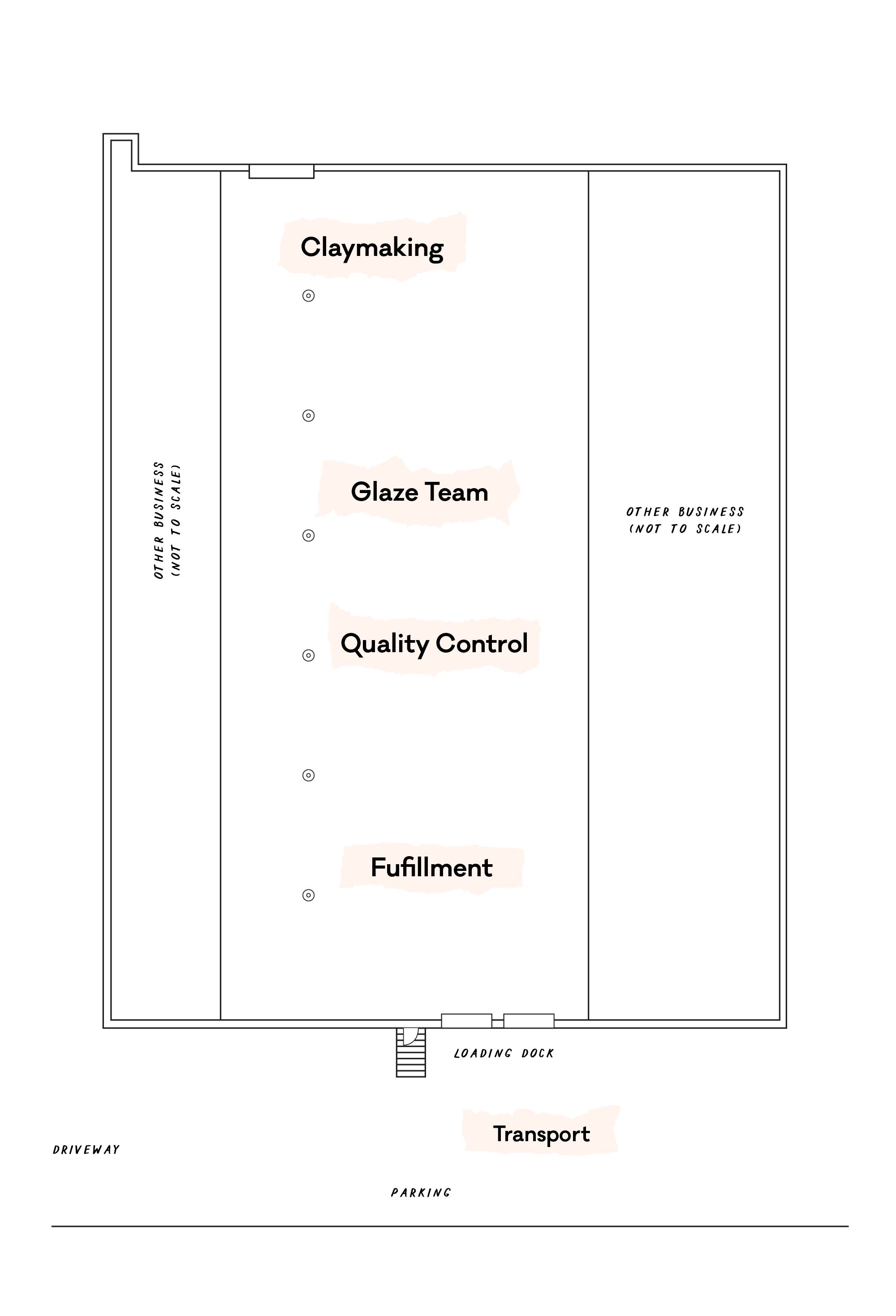
Glaze Team, The Color Experts
Glaze is a protective, glass-like coating on the surface of pots that makes them food safe, functional, and colorful! We formulate our glazes in-house before pots are dipped in glaze buckets. Then, we use sponge belts to wipe glaze from the rims and feet, giving us that beautiful, exposed raw-rim design that’s a quintessential part of our brand. The Team adds the finishing touches by hand-wiping any excess glaze and voila! It’s on to the second (and last) firing.
The Final Firing
After glazing, pots get loaded onto kiln cars and pushed into our two big gas kilns for another overnight firing. In the morning, the kiln cars are pulled out and ready to be passed off to Quality Control.
Over to Quality Control
It’s QC time! The Team sands the unglazed bottoms and rims of each piece to remove any roughness. Then, the pots go through rigorous inspections where they’re deemed “Firsts,” “Seconds,” or “Thirds quality.” Seconds primarily have aesthetic flaws—a streaky glaze here, a little bloat there—and are sold at a discount.
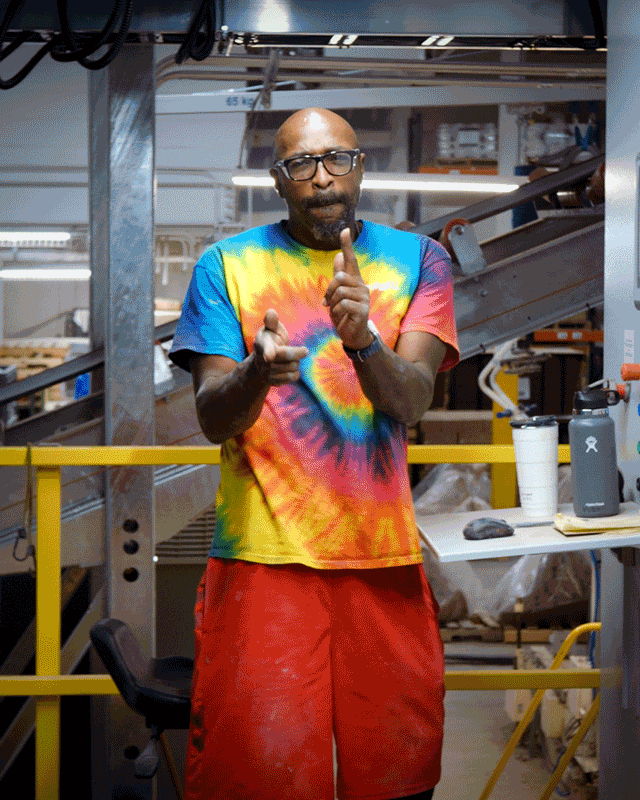
Home to You
Firsts and Seconds pots get sorted into crates and stored on big shelves. As customer orders are received, our “order pickers” drive through the warehouse and pull pots from the crates. The Fulfillment Team carefully wraps them up, arranges them in boxes, and sends the pots to your doorstep. From our hands to yours, we hope you and your pots live a long and delicious life together.
